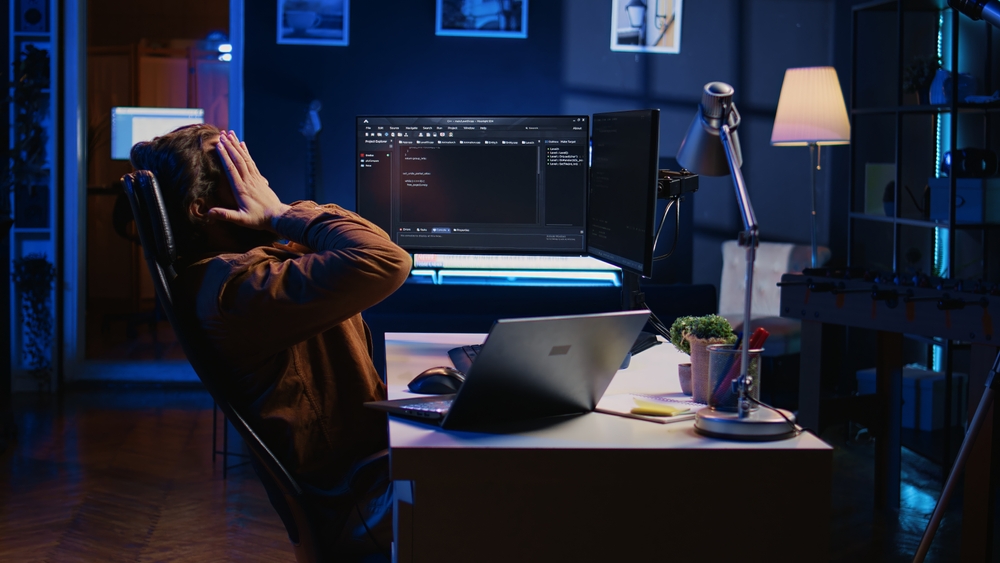One of the great blessings of looking forward to Christmas and the New Year is that we may finally get away from the constant demand for another virtual meeting. We probably hear the phrase – not another ZOOM meeting quite often these days. As we move into the virtual world managers are finding it increasingly difficult to get up from behind their desks as they jump from one virtual meeting into another.

One of the limitations of physical offices was finding a meeting room to occupy for an hour to hold a meeting, the luxury of walking from your office to the meeting on the third floor and saying hello to the people in the lift or by the coffee machine before you walk into the meeting room. Having the space to stop, think and organise on the train or bus as you travel to another business site.
That’s all gone, now at the click of a button, we create a virtual meeting room, with another click I impose my meeting into your diary and with a third click I send you a message asking you where you are because the meeting started two minutes ago.
So, no wonder there is more virtual meeting fatigue right across organisations. Here are some of the common frustrations I have heard in the last few months:
- Too many meetings, even when there is no reason to have a meeting, someone calls a meeting.
- I’m tired and exhausted as meetings start even earlier and go on much later
- I’m noticing more disengagement as people lose focus, concentration and wonder about the next meeting
- Too many long meetings that lack clear purpose or decision making. We get the feeling we have had this meeting before and likely to have it again next week.
- Not enough time to do any concrete work as we move from meeting to meeting. When will the work ever get done?
- Everyone gets invited to the meetings even though there is no reason for them to be there.
I’m sure you have all heard similar comments and maybe you have said similar words. We tend to suck it up and try harder but if we truly want to change the dynamics and get a different result, we need to work differently. Here are some things worth considering:
- Manage your energy
In Tony Schwartz and Catherine McCarthy’s HBR article Manage Your Energy, Not Your Time they note that ‘The core problem with working longer hours is that time is a finite resource. Energy is a different story’. One of the core reasons why we are experiencing virtual fatigue is that we are not paying enough attention to managing our energy. Very simply, energy can be renewed and if we don’t take care of ourselves by renewing our energy through regular breaks, physical movement, healthy eating, mindfulness and engaging in things that energise us, such as taking five minutes to chat to a colleague or friend to see how they are doing, we will experience exhaustion or burnout.
Start putting time into your dairy to re-energise, that could be by having a strict policy of having a 15-minute break between meetings. 30 and 45 minute meetings rather than one-hour meeting so you have a break between meetings.
- Have shorter purposeful meetings
It’s important to be clear about what you want to achieve in a meeting and how much time you will need. Communicating this well in advance helps people to focus and prepare. I suggest you consider categorise meetings into three categories:
Concentrate or focus meetings that would lead to a clear decision and action
Connection meetings which are important and valuable but have the main purpose of keeping everyone informed so that people feel included and are not filling gaps in information with conspiracy theories and wild assumptions
Collaboration meetings where we need to come together and work to co-create something.
Generally, you can get away with a 15 to 25 minutes concentrate and connect meeting depending on the issues. Collaboration meeting can be much longer, so plan breaks, or even spread the tasks over several meetings to allow people to engage without losing getting exhausted.
- Be respectful

The fact that we are ‘Always Connected’ does not mean we need to be ‘Always Available’. Are you the type of manager who sends emails at all hours of the night? Lockdown has blurred the lines between the home and office but take some time to be respectful of others. Tell your staff that it is okay to turn off notifications when their workday is over.
We noticed in our team that we were not respecting peoples lunch breaks, scheduling meeting over lunch and calling each other. We discussed the value of the lunch break just to give people a necessary and important break from the virtual world. So, we all agreed to respect each other’s lunch break.
That is a simple contract, but how many of us have taken the time to contract with our teams on how we expect to work with each other during this time of lockdown. What are our expectations or each other? How can we be respectful of each other?
- Set no meetings times
Yes, the only way you are going to get time to do work is to clear your diary so you can focus on the work. More and more departments are putting days aside in the week for no meetings so that people can catch up on work. Be more thoughtful about what is coming down the line and make sure you are proactive, blocking off time for that work before you surrender your dairy for another virtual meeting.
- Share your workload

You need to share your workload, in the sense of letting everyone know the amount of the work in front of you. And you need to share your workload in the sense of delegating were necessary to reduce the load. This requires you to be transparent and open when you are struggling with workload and need help, and an attitude of empowering others to take up and run with some of your workload.
You can share your workload by having brief check-ins in the mornings where you talk about what is on your plate. And you can also share your workload by making your diary accessible to others. This is also where contracting is important. One participant told me that she shares her diary hoping people would see how busy she is but found out that her colleague had no qualms about triple booking her.
- Look out for each other
Virtual meeting fatigue is hurting us all, so we need to look out for each other. Encourage other is look after their resilience, give people space to check-in and talk. Show empathy and help them to develop better habits to manage their time and energy. Encourage people to seek an alternative to virtual meetings. The best way to reduce virtual meeting fatigue is to have less virtual meetings.





